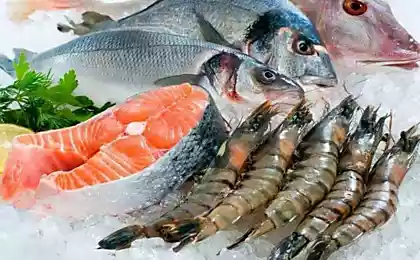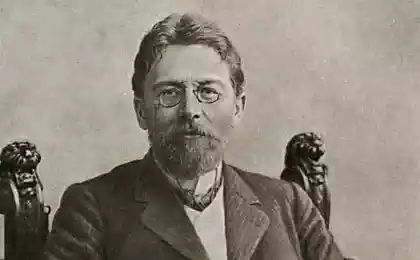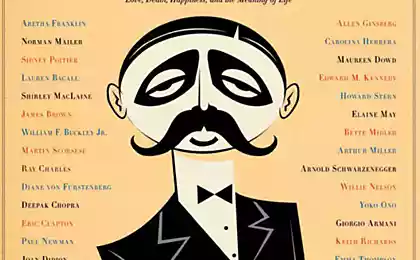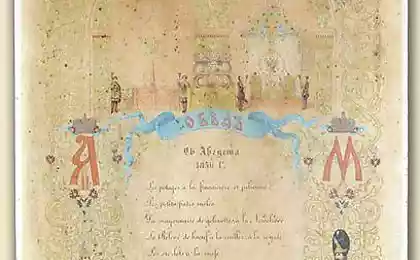153
The husband asks to cook him favorite dishes of Anton Chekhov, I tell you that today on the menu
The most important of all arts, according to Lenin, for us is cinema. And the title of the tastiest of all fishes, thanks to Anton Pavlovich Chekhov, is proudly worn by karashi in sour cream.
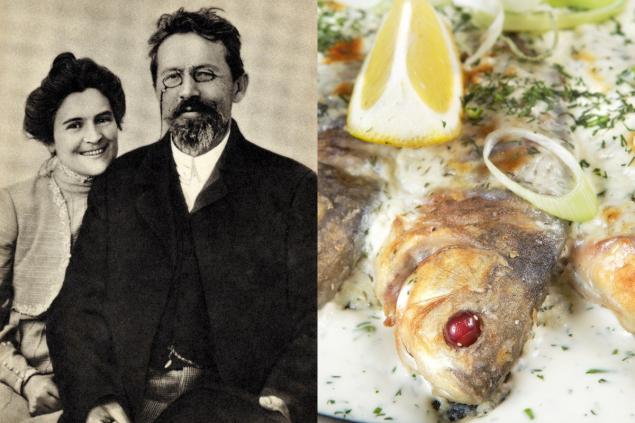
It was their classic sang in the story “Siren”, which can be safely considered an encyclopedia of dishes of Russian cuisine of the XIX century. Chekhov knew a lot about food and described it in a way that none of today’s food bloggers can.
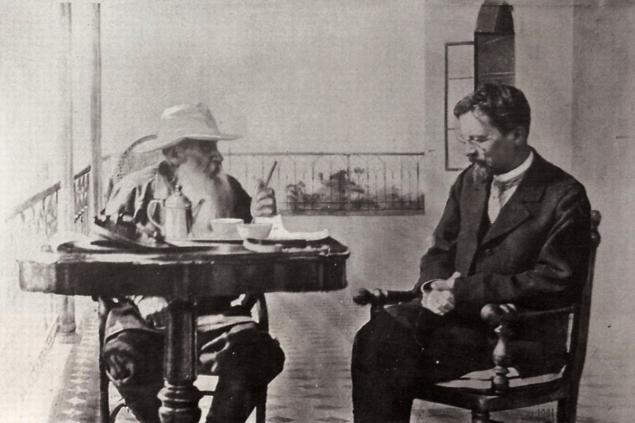
GettyImages: As soon as you eat borschka or soup, immediately order to serve fish, benefactor. Of the voiceless fish, the best is fried carp in sour cream; only that it does not smell of mud and has a fineness, you need to keep it alive in milk for a whole day.
The future author of “Cherry Orchard” and “Three Sisters” was born on January 29, 1860 in a small house on the Police Street of provincial Taganrog.

The writer's father owned a grocery store. Therefore, from early childhood, the boy was surrounded by sugar heads and crates of Arabian coffee, circles of cheese and bottles of Provence oil.
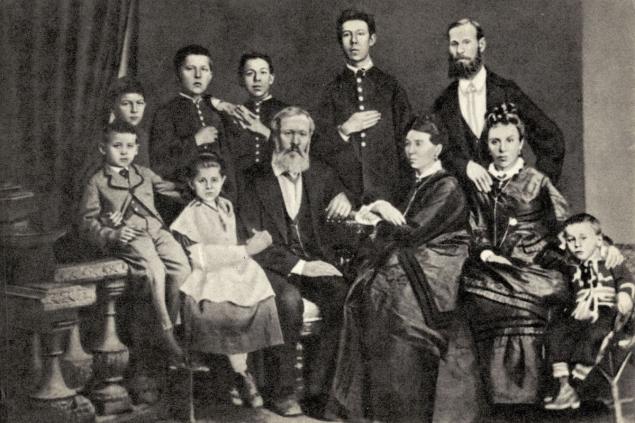
Later, Anton Pavlovich said: “Who does not attach due importance to nutrition, can not be considered a truly intelligent person.” And long to look for confirmation of this in his work is not necessary.
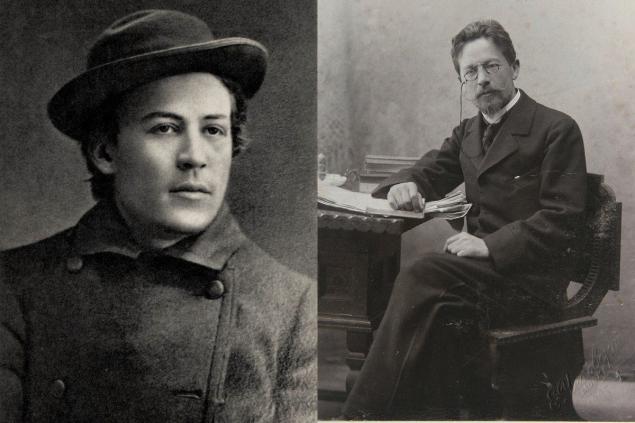
The variety of dishes and the love with which they are described in the stories of Chekhov are simply amazing. “The best snack, if you want to know, herring. You ate a piece of it with a ray and mustard sauce, now, my benefactor, while you still feel sparks in your stomach, eat caviar... then simple radishes with salt, then herrings again... a meal!
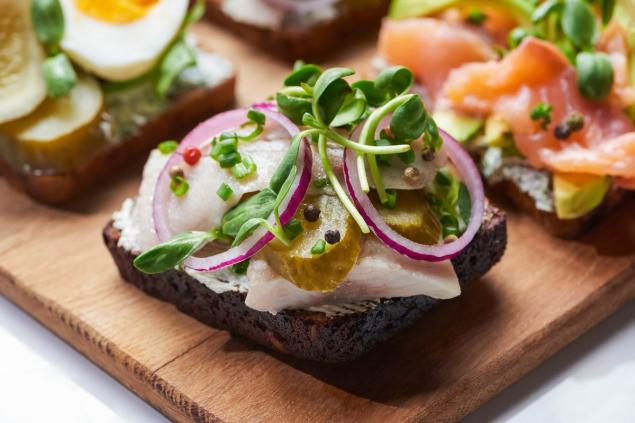
Or, for example, like this: Take the eggs of a half-bellied four, two bulbs of green ray, Provencal oil, mix all this and, you know, like... on top of everything with a lemon. Death! One smell will burn you.”
From snacks to the main dishes: “Kulebyaka should be appetizing, shameless, in all its nakedness, so that the temptation was. You wink your eye at her, you cut off some kind of bushbag, and you move your fingers over her like this, out of a lot of feeling. You will eat it, and with it oil like tears, filling fat, juicy, with eggs, with guts, with onions ...
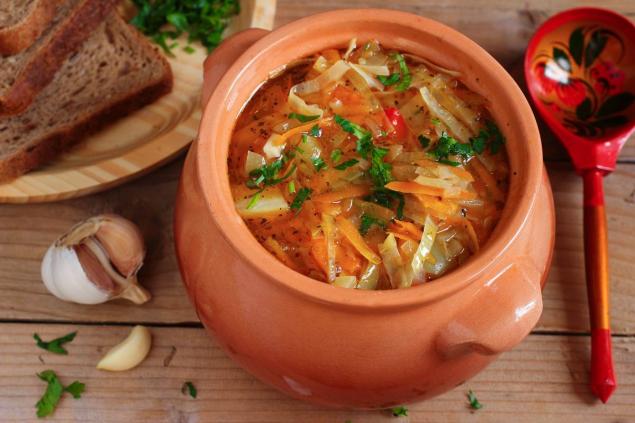
After the kulebeki, it’s time to serve soup: “Should be hot, fire.” Magnificent is also brine from giblets and young kidneys, and if you like soup, then the best soup, which is filled with roots and greens: carrots, asparagus, cauliflower ...
It is not necessary to be Vanga to predict that after such picturesque descriptions, the reader is simply obliged to play out his appetite. Therefore, it is time to go to the preparation of the favorite dish of Anton Pavlovich - karasei in sour cream in Chekhov.
Preparing carp in Chekhov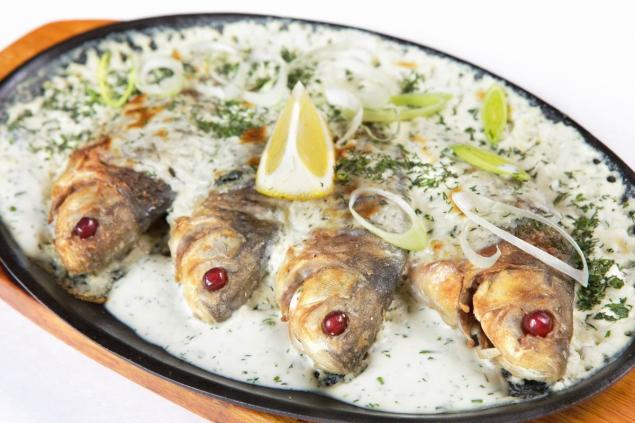
GettyImages Ingredients
Preparation
Earlier, we shared with readers recipes of favorite dishes of the Kremlin leaders from Lenin to Gorbachev, so you can cook the food of the general secretaries and presidents in your kitchen.
Today’s dish came straight from the pages of Chekhov’s stories. Therefore, the gastronomic pleasure of his tasting can be combined with the joy of reading the prose of a brilliant playwright. Bon appetit and even more enjoyable reading!
Photo in article and preview

It was their classic sang in the story “Siren”, which can be safely considered an encyclopedia of dishes of Russian cuisine of the XIX century. Chekhov knew a lot about food and described it in a way that none of today’s food bloggers can.

GettyImages: As soon as you eat borschka or soup, immediately order to serve fish, benefactor. Of the voiceless fish, the best is fried carp in sour cream; only that it does not smell of mud and has a fineness, you need to keep it alive in milk for a whole day.
The future author of “Cherry Orchard” and “Three Sisters” was born on January 29, 1860 in a small house on the Police Street of provincial Taganrog.

The writer's father owned a grocery store. Therefore, from early childhood, the boy was surrounded by sugar heads and crates of Arabian coffee, circles of cheese and bottles of Provence oil.

Later, Anton Pavlovich said: “Who does not attach due importance to nutrition, can not be considered a truly intelligent person.” And long to look for confirmation of this in his work is not necessary.

The variety of dishes and the love with which they are described in the stories of Chekhov are simply amazing. “The best snack, if you want to know, herring. You ate a piece of it with a ray and mustard sauce, now, my benefactor, while you still feel sparks in your stomach, eat caviar... then simple radishes with salt, then herrings again... a meal!

Or, for example, like this: Take the eggs of a half-bellied four, two bulbs of green ray, Provencal oil, mix all this and, you know, like... on top of everything with a lemon. Death! One smell will burn you.”
From snacks to the main dishes: “Kulebyaka should be appetizing, shameless, in all its nakedness, so that the temptation was. You wink your eye at her, you cut off some kind of bushbag, and you move your fingers over her like this, out of a lot of feeling. You will eat it, and with it oil like tears, filling fat, juicy, with eggs, with guts, with onions ...

After the kulebeki, it’s time to serve soup: “Should be hot, fire.” Magnificent is also brine from giblets and young kidneys, and if you like soup, then the best soup, which is filled with roots and greens: carrots, asparagus, cauliflower ...
It is not necessary to be Vanga to predict that after such picturesque descriptions, the reader is simply obliged to play out his appetite. Therefore, it is time to go to the preparation of the favorite dish of Anton Pavlovich - karasei in sour cream in Chekhov.
Preparing carp in Chekhov

GettyImages Ingredients
- 4 carp
- 5 potatoes
- 4 onion heads
- 1 litre of milk
- 1 piece sour cream
- dillbundle
- 70g frozen butter
- salt and pepper
- carrion
Preparation
- Keeping carrots alive in milk will not work, because they are thawed and gutted. But, following the precepts of Chekhov, we will try to make everything as close as possible to the original. Keep the fish in the milk for about a day.
- Then rub salt, pepper, favorite seasonings. Dry it and let it brew.
- Slice the onions and potatoes with rings.
- Roast, without full preparation, in butter.
- Put the potatoes and onions in an even layer on the oiled pan. Ambassadory.
- In the same frying pan where the potatoes were roasted, roast the stoned carrots to a golden crust.
- Place the karache on a pillow of potatoes and onions. Sour cream. Rub the frozen butter on top.
- Send the pan to the 180-degree oven. Bake for about 40 minutes.
- Karasi in sour cream ready. Decorate them with dill and slices of lemon and serve them on the table.
Earlier, we shared with readers recipes of favorite dishes of the Kremlin leaders from Lenin to Gorbachev, so you can cook the food of the general secretaries and presidents in your kitchen.
Today’s dish came straight from the pages of Chekhov’s stories. Therefore, the gastronomic pleasure of his tasting can be combined with the joy of reading the prose of a brilliant playwright. Bon appetit and even more enjoyable reading!
Photo in article and preview
I hand over the recipe at the request of the American mother-in-law, cupcakes are obtained from an expensive restaurant.
Why Not All Women Like Compliments

